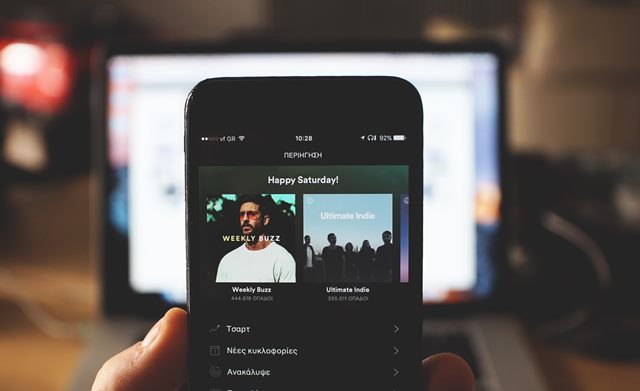The music industry has undergone a massive transformation in recent years, with the rise of streaming services being one of the most significant factors. Gone are the days when people would spend hours browsing through record stores or waiting for their favorite songs to come on the radio.
Now, with just a few clicks, millions of people around the world can access an almost unlimited library of music anytime, anywhere.
Streaming services like Spotify and Apple Music are changing how people access and consume music.
In this article, we’ll dive into the rise of streaming services and explore the many ways they affect the music industry.
We’ll cover everything from the impact on artists and labels to the challenges they are facing and the opportunities they offer.

Get to Understand Streaming Services
Streaming services are online platforms that allow users to access and listen to music or other audio content over the internet.
These services offer a vast library of songs and albums that can be streamed on demand without needing physical storage.
Streaming services typically work on a subscription-based model. Users either pay a monthly fee or a yearly fee for unlimited access to their music library.
With the growth of the internet and mobile technology, streaming services have become increasingly popular. They offer a convenient and affordable way for people to listen to music.
Some well-known streaming services include Spotify, Apple Music, Tidal, and Amazon Music. These platforms allow users to stream music from their computers, smartphones, and other devices.
They also offer additional features such as personalized playlists, recommended songs, and social sharing options.
The music industry has undergone significant changes with the rise of streaming services. This is especially true considering the shift from physical sales to digital streaming. The change has affected how artists, record labels, and consumers make music.
In the following paragraphs, we’ll discuss the dynamics of streaming services in the music industry.
The Impact of Streaming Services on the Music Industry
One of the biggest impacts of streaming services on the music industry has been the increased accessibility to music. This has brought about a significant shift in power from record labels to artists, giving artists more control over their music and allowing them to reach a wider audience.

Streaming services have also led to changes in revenue models. Artists and record labels now earn more money from streaming royalties and less from physical sales.
In addition to these changes, the rise of streaming services has significantly impacted the physical music market. With the ability to stream music online, the demand for physical albums has decreased, leading to a decline in the sale of CDs and similar formats.
However, some argue that this decrease in physical sales is offset by the increase in streaming royalties and the ability for artists to reach a larger audience.
The Advantages of Streaming Services for Music
Why do so many people use streaming services to listen to music?
Convenience
One of the biggest advantages of streaming music online is convenience. People can access a vast library of songs anytime, anywhere, with just a few clicks. This means they can listen to what they want when they want, and without needing to go to the store or carry CDs.
Put Your Tech Company on the Map!
Get featured on Nicholas Idoko’s Blog for just $50. Showcase your business, boost credibility, and reach a growing audience eager for tech solutions.
Publish NowMore Choices at Your Fingertips
Physical formats like CDs and DVDs are often limited to a certain artiste or genre. The more you buy, the more options you get. This is different in streaming services, as you only need one subscription to access a wide selection of songs and albums.

This means people can find something that suits their interests. Whether it be their favorite classic album or the latest release from their favorite artist.
Improved Sound Quality
Streaming music online typically offers improved sound quality compared to traditional listening methods. Due to high-quality streaming and advanced technologies like Dolby Atmos, people can listen to music with crystal clear sound and vivid quality.
Personalization
Many music streaming services offer personalized recommendations based on a person’s listening history and preferences. This makes it easier for people to discover new and exciting music they may not have otherwise known about.
Access to Live Performances
Streaming services often offer live performances and exclusive concerts that are not available anywhere else. This gives people access to the music they love in a new and exciting way.

Affordability
Another key advantage of streaming music online is affordability. Many music streaming services offer monthly subscriptions for a low fee, which is often less expensive than buying CDs or downloading songs.
Social Interaction
Streaming services often include social features that allow people to share what they’re listening to with friends and family. This adds a new level of interactivity and engagement to the listening experience.
The Disadvantages of Streaming Services
There is always another side to the coin. Undoubtedly, the rise of streaming music services has significantly impacted the music industry. But it is not without its disadvantages.
Here are some of the disadvantages of streaming services to both the users and the artists:
Lack of Ownership
One of the biggest disadvantages of streaming music is that people do not own the music they listen to. This means they do not have a physical copy of their favorite songs.
Put Your Tech Company on the Map!
Get featured on Nicholas Idoko’s Blog for just $50. Showcase your business, boost credibility, and reach a growing audience eager for tech solutions.
Publish Now
And they may have difficulty accessing their music if the streaming service they use changes its offerings or goes out of business. They might also be unable to access songs they previously listened to once their subscription expires.
Poor Compensation for Artists
Many artists and music industry professionals have criticized streaming services for their low payouts to creators. While these services have made music more accessible, the low royalties paid to artists have led to concerns over the industry’s long-term viability.
Limited Availability
Although streaming services offer a huge music library, not all songs or albums are available on these platforms. This can be frustrating for music fans who want to listen to a specific album or track but cannot find it on their preferred service.
Limited Offline Availability
While many streaming services offer offline listening, it’s often limited to specific playlists or a small selection of songs. This can be a problem for people who want to listen to music on the go or in areas with limited internet connectivity.
Ad Interruptions
Many music streaming services offer free, ad-supported options. While these options are an excellent way to save money, they often come with frequent ad interruptions that can frustrate users.
Compatibility Issues
Streaming services are not always compatible with all devices, which can be a problem for people with older devices or multiple platforms. This can limit the flexibility and accessibility of these services.
The Future of the Music Industry With Streaming Services
We cannot overstate the rapid change the music industry has experienced due to the emergence of streaming services. But what does the future hold for the music industry in an increasingly streaming-focused world?

Continued Growth
Streaming services are expected to continue their growth trajectory in the coming years. As more people use these platforms to access and enjoy music, the industry is likely to see increased revenue and profitability.
Increased Competition
With the continued growth of streaming services, the market will likely become increasingly competitive. This could lead to new platforms and existing players expanding their offerings and vying for market share.
Put Your Tech Company on the Map!
Get featured on Nicholas Idoko’s Blog for just $50. Showcase your business, boost credibility, and reach a growing audience eager for tech solutions.
Publish NowImproved Royalties for Artists
One of streaming services’ biggest criticisms is the low payouts to artists and creators. However, as the industry grows and matures, royalty rates will likely increase and become more equitable for all involved.
Expansion Into New Markets
Streaming services are expected to expand into new markets to reach new audiences and capture additional revenue. This could include entry into developing countries with emerging music markets and efforts to increase market share in established markets.
Enhanced User Experience
These platforms are also likely to invest in enhancing the user experience. This could include improvements to search functionality, recommendations, playlist curation, and the introduction of new features and functionalities.

New Business Models
As the industry evolves and matures, we expect to see new business models emerge. This could include different subscription-based models, an improvement on the existing ad-supported options, and hybrid models that combine both.
Integration with Other Services
Streaming services are also likely to integrate with other platforms and services, such as social media and smart home devices. This could provide a more seamless and convenient experience for users while also expanding the reach and impact of these services.
Before you go…
Hey, thank you for reading this blog to the end. I hope it was helpful. Let me tell you a little bit about Nicholas Idoko Technologies. We help businesses and companies build an online presence by developing web, mobile, desktop, and blockchain applications.
We also help aspiring software developers and programmers learn the skills they need to have a successful career. Take your first step to becoming a programming boss by joining our Learn To Code academy today!
[E-Books for Sale]
1,500 AI Applications for Next-Level Growth: Unleash the Potential for Wealth and Innovation
$5.38 • 1,500 AI Applications • 228 pages
Are you ready to tap into the power of Artificial Intelligence without the tech jargon and endless guesswork? This definitive e-book unlocks 1,500 real-world AI strategies that can help you.
See All 1,500 AI Applications of this E-Book
750 Lucrative Business Ideas: Your Ultimate Guide to Thriving in the U.S. Market
$49 • 750 Business Ideas • 109 pages
Unlock 750 profitable business ideas to transform your future. Discover the ultimate guide for aspiring entrepreneurs today!
See All 750 Business Ideas of this E-Book
500 Cutting-Edge Tech Startup Ideas for 2024 & 2025: Innovate, Create, Dominate
$19.99 • 500 Tech Startup Ideas • 62 pages
You will get inspired with 500 innovative tech startup ideas for 2024 and 2025, complete with concise descriptions to help you kickstart your entrepreneurial journey in AI, Blockchain, IoT, Fintech, and AR/VR.
See All 500 Tech Startup Ideas of this E-Book
Put Your Tech Company on the Map!
Get featured on Nicholas Idoko’s Blog for just $50. Showcase your business, boost credibility, and reach a growing audience eager for tech solutions.
Publish NowWe Design & Develop Websites, Android & iOS Apps
Looking to transform your digital presence? We specialize in creating stunning websites and powerful mobile apps for Android and iOS. Let us bring your vision to life with innovative, tailored solutions!
Get Started Today



